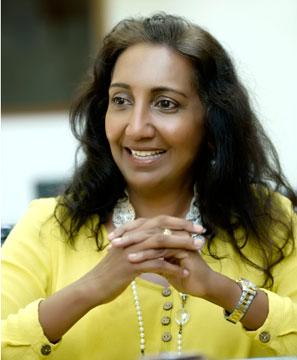
Could five key factors in the country abolish Corporal Punishment (CP) from Sri Lankan schools by the year 2020? Parents, professionals and activists seem to think so. That’s why they submitted the ‘Pentagon Proposal’ to the President on September 30, the day before the Children’s Day celebrations in Sri Lanka.
‘End Corporal Punishment – Vision 2020’ (ECP2020) is a collaboration between ‘Stop Child Cruelty-Sri Lanka’ (SCC-SL); Daruwan Surakimu program conducted by the Presidential Secretariat, Sri Lanka Foundation Institute and an alliance of professionals, with two renowned social activists - Otara Gunawardene and Sidath Wettimuny as patrons. Along with members of civil society they marched from Independence Square to the Presidential residence to handover the ‘Pentagon proposals’ to the President.
However, commitment towards children, the future leaders and the citizens of the country is the secret leading to the success of the plan, which seems to be lacking in the higher political echelons, they say. Though the Pentagon proposal bringing the President as the head of the country and four ministerial positions, that of the Ministers of Education, Children’s Affairs, Law and Order and Justice together in the fight to eliminate corporal punishment, nearly four months after there has been no action to implement the plan, said Chairperson, SCC-SL, Dr. Tush Wickramanayaka.
SCC-SL is a civil society organization working towards facilitating a healthy school environment for children to be happy, free of fear and physical and mental harm, spearheads the campaign. “Rights of children and women seems to take very low priority in our Sri Lankan system,” she said.
Six activities
The country came under fire last February, when the United Nations Convention on the Rights of the Child (UNCRC) issued a red alert for failing to ban Corporal Punishment, though the country had ratified the convention in 1991.
UNCRC defines corporal punishment as “Any punishment in which physical force is used and intended to cause some degree of pain or discomfort, however light.” While it mostly involves hitting, it could include acts such as kicking, scratching, pinching, pulling hair and forcing children to stay in uncomfortable positions. Other forms of punishment though nonphysical, which belittles, humiliates, denigrates, scapegoats, threatens, scares or ridicules children are also included in the definition of corporal punishment.
Explicit ban
The ‘Pentagon proposal’ has put forward six activities to be carried out in its first phase. They are:Ensuring a total ban on corporal punishment; implementing the National Child Protection Policy (NCPP); regulating international schools; circulating all relevant circulars to all schools; establishing Child Protection Officers (CPOs) in every school and creating awareness among parents and the public.
The proposal’s first action calls for legislative changes to be repealed with an explicit ban on corporal punishment. Within the present scenario, using force on children is both an offence as well as a legally sanctioned activity.
In 1995 Sri Lanka amended its Penal Code Section 308 A, to recognise cruelty against children causing hurt, grievous or simple as well as torture, as a criminal offence. However, this does not specify corporal punishment.
The Penal Code article 82 and Article 71(6) of the Children and Young Persons Ordinance recognises the right of parents, teachers and guardians to administer and justifies punishment meted out ‘in good faith’.
“That’s why we need to change the law. There is contradiction within the Penal Code. There is no clarity and people use it as a loophole. Explicitness in banning corporal punishment will bring in clarity and solve the problem,” said Dr. Wikramanayaka.
Mechanism
The second item of the proposal, seeks to ensure that the NCPP is tabled in the Parliament and to bring the management of the National Child Protection Authority (NCPA) directly under the President. However, though the President had sent a letter dated October 2, 2018 to the Chairperson of NCPA giving instructions which was copied to the campaigners, the non-responsive attitude of the NCPA is clearly disappointing, Dr. Wikramanayaka said.
The ground for regulating international schools arises from the need of the law of the country to be applicable to all, so that they are measured by the same yardstick. What’s necessary is “Not incriminating remarks about international schools from responsible people, but to implement the cabinet decisions taken at least on two occasions,” said Dr. Wikramanayaka. It was on June 20, 2013 that then Cabinet approved arrangements for the formulation of a legal framework and a mechanism to regularise international schools to be in line with the national educational policies. While this never materialised, on May 9, 2018 the Cabinet approved the Prime Minister’s proposal to appoint a Cabinet Sub-Committee to study, recommend and to establish legal provisions in regulating international schools, which is yet to happen.
When it comes tosetting up CPOs in schools and creating awareness among parents some more civil society organisations - the Sarvodaya Movement and the Shanthi Margam had joined hands with ECP2020. “We are working together to launch a nationwide awareness campaign,” said Dr. Wikramanayaka.
The campaign proposes that principals and two teachers from each school undergo training on Child Protection. This also includes training on evidence based guided list of alternative disciplinary procedures.
They also plan to include the Officers In Charge (OICs) of the Police and OICs of Children’s Units to undergo similar training.
